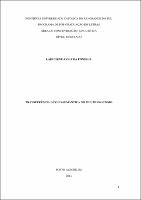| Compartilhe o registro |


|
Use este identificador para citar ou linkar para este item:
https://tede2.pucrs.br/tede2/handle/tede/2206Registro completo de metadados
| Campo DC | Valor | Idioma |
|---|---|---|
| dc.creator | Fonseca, Laís Cirne Avila da | - |
| dc.creator.Lattes | http://buscatextual.cnpq.br/buscatextual/visualizacv.do?id=K4334987Y8 | por |
| dc.contributor.advisor1 | Scherer, Lilian Cristine | - |
| dc.contributor.advisor1Lattes | http://buscatextual.cnpq.br/buscatextual/visualizacv.do?id=K4704496P3 | por |
| dc.date.accessioned | 2015-04-14T13:39:28Z | - |
| dc.date.available | 2015-02-26 | - |
| dc.date.issued | 2014-12-22 | - |
| dc.identifier.citation | FONSECA, Laís Cirne Avila da. Transferência léxico-semântica no multilinguismo. 2014. 85 f. Dissertação (Mestrado em Letras) - Pontifícia Universidade Católica do Rio Grande do Sul, Porto Alegre, 2014. | por |
| dc.identifier.uri | http://tede2.pucrs.br/tede2/handle/tede/2206 | - |
| dc.description.resumo | O multilinguismo como fenômeno social e linguístico ainda é pouco explorado no Brasil. Embora o tema tenha conquistado espaço no país, a literatura internacional na área ainda é bem mais vasta. Um dos temas investigados relacionados ao multilinguismo é a questão da transferência translinguística, em diferentes níveis (fonológico, morfossintático, semântico e discursivo-pragmático) entre as línguas conhecidas e utilizadas por um indivíduo. O foco deste estudo é analisar as transferências no nível léxico-semântico das línguas previamente aprendidas (de português como L1 e de inglês como L2) na produção escrita do francês como L3. Mais especificamente, a pesquisa procura: (1) investigar a categoria de transferências léxico-semânticas (se, de forma ou semântica) mais recorrente nas produções dos participantes; (2) investigar em qual direção ocorrem mais transferências do tipo investigado, se da L1 para a L3 ou da L2 para a L3. Duas hipóteses foram postuladas: (1) pressupõe-se, de acordo com Ecke (2001), uma maior transferência lexical de forma, que acontece quando o aprendiz observa uma similaridade estrutural entre a L1 ou a L2 e a palavra que se deseja usar na L3 e (2) pressupõe-se que a transferência deva ocorrer em maior parte no sentido L2-L3 na comparação com a direção L1-L3 devido ao status de língua estrangeira compartilhado pela L2 e pela L3, como nos estudos de Bardel e Falk (2007), Llama, Cardoso e Collins (2007) e Shooshtari (2009). Participaram do estudo 12 adultos jovens, falantes de português como L1, inglês como L2 em nível intermediário e francês como L3 em nível básico. Os resultados mostram que a maior parte das transferências lexicais foi de forma. Quanto à origem da fonte de transferência, observou-se que a maior parte das transferências teve como fonte a L1. Concluiu-se que o fator da tipologia linguística (semelhança entre o português (L1) e o francês (L3)) tenha sido um dos principais motivos da recorrência à L1 na produção escrita na L3. | por |
| dc.description.abstract | Multilingualism as a social and linguistic phenomenon is still not much explored in Brazil. Even though the issue has gained much attention in the country, the international literature in the area is wider. One of the investigated issues is the crosslinguistic transfer on different levels (phonological, morphosyntactic, semantic and discourse-pragmatic) between the individual s known and used languages. The focus of the present study is to analyze the transfer on the lexical-semantic level between the previous languages learned (Portuguese as L1 and English as L2) to the written production of French as L3. More specifically, this study aims at analyzing: (1) the category of the lexical-semantic transfer, whether formal or semantic, more present in the participants written production; (2) the direction in which more lexical-semantic transfer occur, if L1-L3 or L2-L3. Two hypotheses were formulated: (1) it is assumed that, according to Ecke (2001), there will be more formal lexical transfer, which happens when the learner notices a structural similarity between L1 or L2 and the intended word in the L3 and (2) it is assumed that the transfer should more frequently happen from L2 to L3 due to the status of foreign language as in Llama, Cardoso and Collins (2007), Shooshtari (2009), Bardel and Falk (2007). Twelve (12) young adults participated in the present study, all native speakers of Portuguese (L1), English speakers as L2 with an intermediate proficiency level and French learners as L3 with a basic proficiency level. The results show that the majority of the transfer was lexical of the form typology. The source of the transfer was, in the majority of the cases, the L1. It was concluded that typological proximity can be one of the main reasons for the recurrence to the L1 in the L3 written production. | eng |
| dc.description.provenance | Made available in DSpace on 2015-04-14T13:39:28Z (GMT). No. of bitstreams: 1 465752.pdf: 2597446 bytes, checksum: 0a74227bc5461a9080951a3148975020 (MD5) Previous issue date: 2014-12-22 | eng |
| dc.format | application/pdf | por |
| dc.thumbnail.url | http://tede2.pucrs.br:80/tede2/retrieve/10139/465752.pdf.jpg | * |
| dc.language | por | por |
| dc.publisher | Pontifícia Universidade Católica do Rio Grande do Sul | por |
| dc.publisher.department | Faculdade de Letras | por |
| dc.publisher.country | BR | por |
| dc.publisher.initials | PUCRS | por |
| dc.publisher.program | Programa de Pós-Graduação em Letras | por |
| dc.rights | Acesso Aberto | por |
| dc.subject | LINGUÍSTICA | por |
| dc.subject | MULTILINGUÍSMO | por |
| dc.subject | AQUISIÇÃO DA LINGUAGEM | por |
| dc.subject.cnpq | CNPQ::LINGUISTICA, LETRAS E ARTES::LETRAS | por |
| dc.title | Transferência léxico-semântica no multilinguismo | por |
| dc.type | Dissertação | por |
| Aparece nas coleções: | Programa de Pós-Graduação em Letras | |
Arquivos associados a este item:
| Arquivo | Descrição | Tamanho | Formato | |
|---|---|---|---|---|
| 465752.pdf | Texto Completo | 2,54 MB | Adobe PDF |  Baixar/Abrir Pré-Visualizar |
Os itens no repositório estão protegidos por copyright, com todos os direitos reservados, salvo quando é indicado o contrário.




